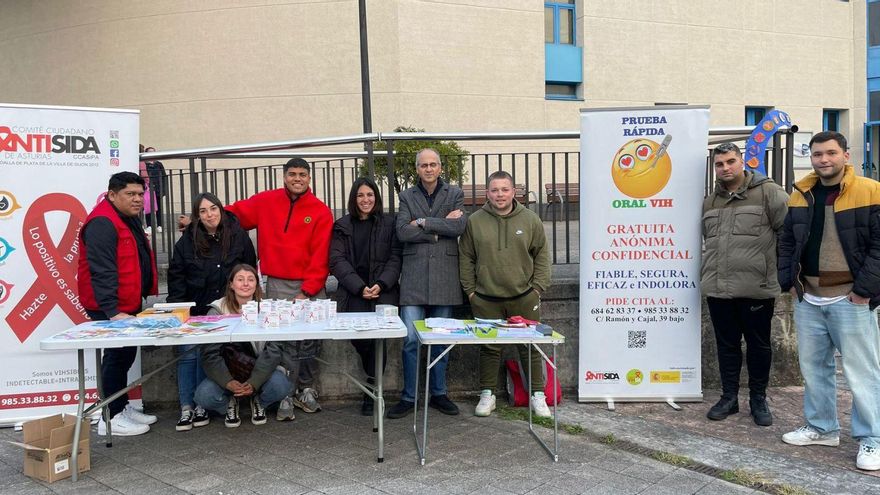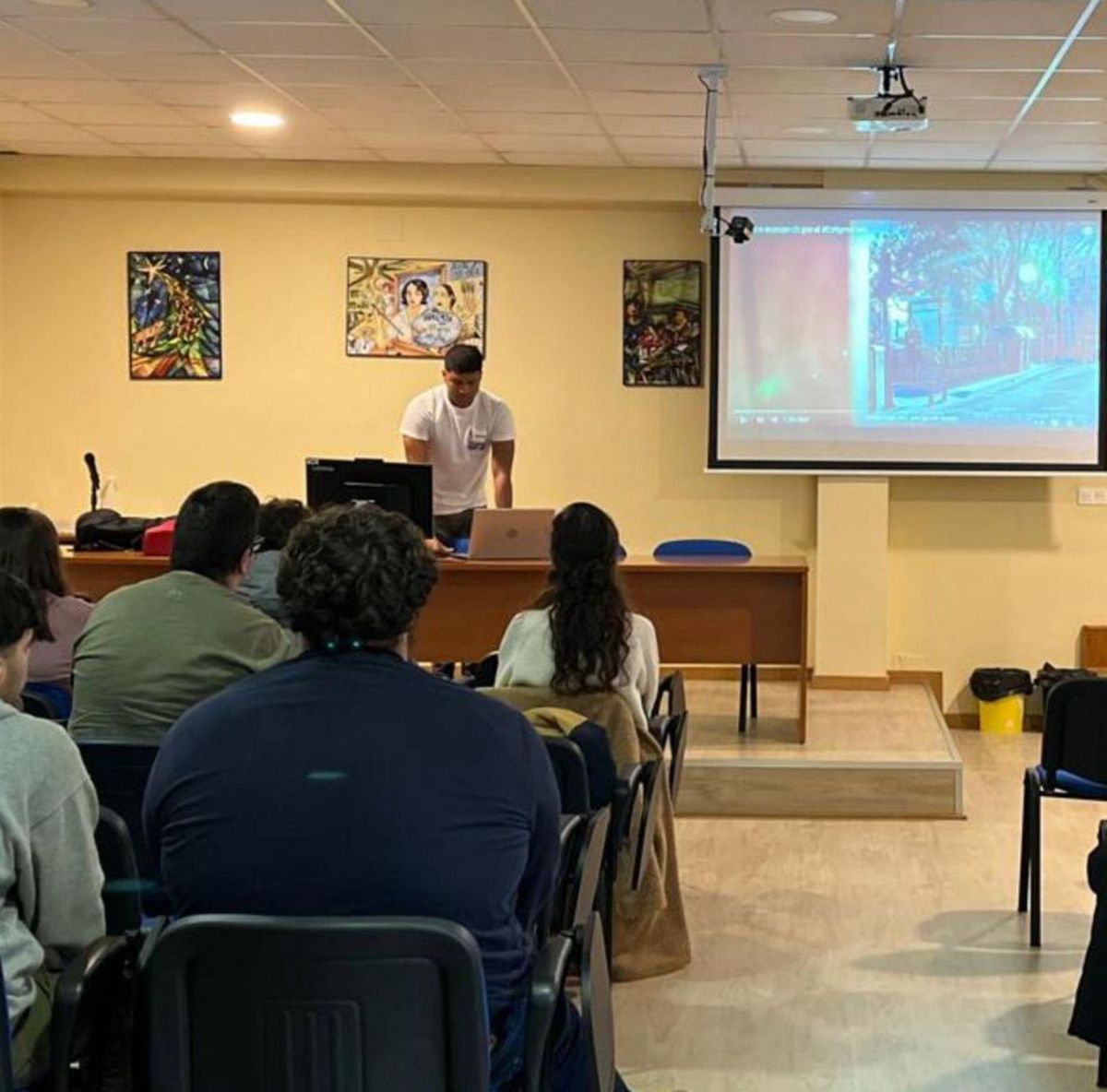Aviles speaks out against HIV stigma at European Testing Week

“Historically we have improved, but there is still work to be done. Intravenous transmission of HIV (human immunodeficiency virus) has decreased significantly, but in the sexual sphere the number is still significant.” Jesús Cisneros, coordinator of the Citizens’ Committee against AIDS of the Principality of Asturias, held a seminar this Monday at the Carreño Miranda Institute, intended for students of the higher education module “Social Integration”, with the aim of raising public awareness and avoiding the stigmatization of people with HIV. The event at the education center was organized by the city’s Department of Sustainable Development and is part of the European Test Week, which runs until 25 November. The initiative is part of the Fast-Track Cities Association and aims to ensure that HIV is no longer a public health problem by 2030.

Jesus Cisneros during a seminar at the Carreño Miranda Institute.
There are an estimated 150,000 to 170,000 people living with HIV in Spain, of whom 7.5 percent do not know their serostatus. In Asturias, in 2022 (the latest year of data), this figure reached 3,005 people diagnosed, all of whom were treated. Cisneros, during his seminar in Carreño Miranda, explained that in Asturias three or four new cases are diagnosed every year, mainly among people over 35 years of age. The committee coordinator emphasized the desire to achieve the “three 95” goals: that 95 percent of people be diagnosed with HIV; of these, 95 percent are on treatment; and of these, 95 percent are undetectable and undetectable.
Cisneros, who accompanied the sociocultural association Comver de Versalles in the afternoon to promote HIV testing in the surrounding area under the slogan “In Versailles we unite for a city without HIV and stigma”, used his time in Aviles to debunk several hoaxes about the population with HIV , for example, its differentiation from AIDS (which is the final phase of infection). Additionally, he denied that saliva is a transmitting fluid or that the infection affects a specific group of people.
“We must continue to deny the truth because the reality is that anyone who has unprotected sex risks contracting an STI (sexually transmitted infection) or HIV,” Cisneros said. In addition, he pointed to medical advances that allow infected people to “lead completely normal lives” and the need to disseminate them, as well as the importance of promoting annual or biennial screenings among the population.
To this end, the Principality’s Citizens’ Committee for the Fight against AIDS invites the public to contact them at 684 628 337, by calling or messaging. It provides all consultations related to HIV or any STIs, offers consultations or appointments for diagnostic tests, as well as psychological assistance or support for those people who have already been diagnosed with HIV.
Subscribe to continue reading
